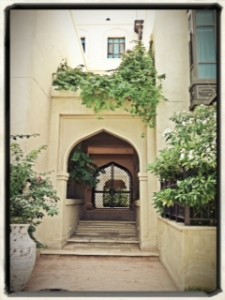A WALLED CITY

Walls are a common theme in Doha. When one missionary walks through his neighborhood, he only sees imposing 10-foot walls surrounding huge new Qatari family palaces with lush gardens and run-down homes inhabited by laborers from the east. Qatari families are very private. Each house, each family, each person, has a façade. Women are covered. Men wear robes. Houses are hidden. Everything is white, giving the appearance that everyone is clean, everyone is okay, everything is fine. Despite the image they project, many are hurting and dying in darkness. Ancient Jericho was another place with walls. Joshua 6:1 tells us…

